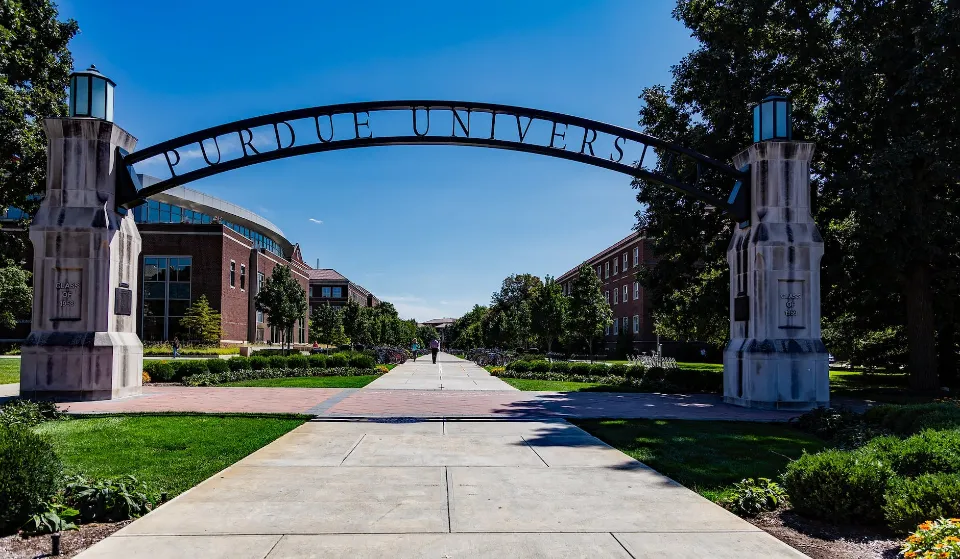
How to Transfer from Community College to University? Steps
It’s not as difficult as most people think it is to transfer from a community college to a university. You can follow the detailed instructions in this guide to transfer to the university.
If you’re reading this, you’re probably seriously considering getting a college degree because of how it can benefit you in the long run. However, you might not feel ready to enroll in a four-year university at this time due to academic, financial, familial, or other factors. In these situations, attending community college for two years and transferring to a four-year institution afterward may be a wise decision.
We’ll go over every detail of transferring from community college to university in this article.
How to Transfer from Community College to University?
If you want to transfer to a university, there are some steps you must take. Before we go over those steps, keep in mind that each university has a different transfer procedure, so you might need to conduct some independent research. So, here’s how to pull off a successful transfer from a community college to a university.
Before you decide to transfer from a community college to a university, you should think about:
- Is Community College Easier Than University?
- Is College For Everyone?
- Reasons Why College Is Not Necessary
- Can You Take Classes at a Community College While Enrolled in University?
- How Many Classes Can You Take in College?
Plan Ahead
Students must make plans in advance for their transition from community college to university to ensure that the transfer process runs smoothly. Students can get ready for the next steps in their education by making plans in advance. The strategy will, however, only be effective if all college credits earned at the community college are successfully transferred to the four-year degree program.

Find out if there are any transfer agreements between where you are and where you want to go, and start gathering transfer documents early on. Making a decision will be made easier the earlier you start preparing for transfer and the more information you have. Even if your plan changes, having one for the long term is preferable to having none at all.
Keep a High GPA
Maintaining a high-grade point average is necessary if you are determined to transfer from community college to a university. The admissions process is still competitive even if a student is transferring from a community college.
Students who are transferring from community colleges, in particular, must work hard to maintain their grades because institutions value them as a major admissions factor.
The University of Potomac requires students who wish to transfer credits to submit an official transcript of their academic records. Students should submit transcripts from all previous colleges/universities attended.
Decide on a Major
A benefit of attending a community college is the opportunity to explore your interests, but you shouldn’t put off choosing your major because of this. When you know what major you are interested in then it will benefit you to know what classes to choose and figure out what classes are not transferable.
When they want to transfer, students frequently make the mistake of enrolling in general education courses that are irrelevant to their majors. See the differences between the majors: Oceanography Vs Marine Biolog.
You can enroll in the university prerequisite courses required for the desired program by knowing what you want to major in before you start. Having a plan on which courses you take will help you achieve maximum productivity when it comes to your transfer program.

It’s better if you pick a major early, even if you decide to switch to another one. If you are not sure about a major yet, you can take a look at our Bachelor’s and Master’s programs to take inspiration.
Research Prospective Universities
Transferring necessitates extensive research. Make sure the school where you’ll be attending classes is a great fit for you, either academically or socially. You must gather a lot of information and take into account various aspects before transferring to a university, including the institution’s credit transfer policy and financial aid options.
You can read the article on the frequently asked questions regarding transferring from a CC to a university as well as our step-by-step guide for transfer students, which will tell you everything about our requirements in the admissions process. You are welcome to get in touch with us and ask any questions you may have.
Find Out About Credit Transfer Policy
The uncertainty of whether their four-year university will accept all of their community college credits is a common barrier for transfer students. In order to transfer to universities, make sure the courses you choose are appropriate. Articulation agreements are another thing you ought to research.
For associate’s degree holders who want to pursue a bachelor’s degree, Potomac is working with community colleges across the nation to provide an accessible and affordable educational option.
The enrollment advisors here at the University of the Potomac will work closely with interested students in order to maximize their transfer credits. For the purposes of your Bachelor’s degree program, our university can accept up to 84 semester hours. Alternatively, if you already hold an Associate’s degree, we may accept up to 60 semester hours.
Communicate With Advisors

Advisors can assist students in selecting the appropriate courses to advance their transfer endeavors because they have experience with how transfer processes operate at various institutions. Be sure to let your advisor know about your transfer plans, and as the time draws near, schedule a meeting with an advisor at your intended institution.
Transfer policies may change annually and may contain minor details that are simple to miss. There might be information you need to know prior to transferring that only advisors can provide or questions that only they can answer. If you alter any of your contact details, let your new university know, and make it a point to reply to all messages.
Ask Specific Questions
Even if you learn a lot of general information about a university, your transfer research shouldn’t end there. Contacting the university you are thinking about is beneficial if you have any questions about your circumstance.
Find out all the important deadlines for the university you plan to attend since application deadlines for admission are dispersed throughout the year.
Make sure to include them in your overall transfer plan once you have all the information. Keep in mind that it’s important to not just meet deadlines but to act as early as possible. Supply all transfer application documents required or requested by the deadline dates.
Check Financial Aid Options
Transfer students can receive financial aid and scholarships from many universities. Transfer students are typically given consideration for various types of financial aid. Find out How Much Money Do You Need For College?
After a student has successfully completed the admissions process at the University of the Potomac, a meeting with a financial aid officer will be scheduled; their job is to assist you in determining how to pay for your education.
The necessary paperwork is filled out to determine eligibility during the financial aid appointment. Students will receive an Estimated Award Letter after their eligibility has been established, and they will have the choice to accept or reject the award at that time. Make sure that you meet all of the deadlines for financial aid.

Prepare Mentally
Even though community college can be very successful for students, transitioning to a four-year university may feel like starting over in a totally different setting. The good news is that persistent community college students perform just as well as those who begin at four-year institutions.
Be sure to remind yourself of your academic and professional objectives because they might have been overshadowed by the transfer process’s system and all the research. You can get a great education at a community college, but to succeed, you need to remember to stay focused. Keep your goals in mind whether you’re pursuing an associate’s or bachelor’s degree.
Apply for Admission
The next step is to apply once you’ve finished your research and planning. Although it can be difficult for transfer students, our lenient transfer policy makes it simple. Our acceptance criteria are practical and broad-based. To learn more about how to complete your degree at the University of the Potomac, visit our Transfer Students page.
What Exactly is Required to Transfer from a Community College to a University?
planning, in a nutshell. Even before selecting the community college you want to attend, you must plan your transfer. The simple reason for this is that not every university will accept transfer credits from every community college.
Imagine finishing college and learning that the one or two years of work you just put in were in vain. For this reason, it’s crucial to plan ahead for transfer credits.
When Should You Transfer from Community College to University?
How long should you attend a community college before transferring your credits to a university? And should you transfer before earning an associate’s Degree or wait until after?
The truth is it depends upon your goals and your situation. You might spend two years at a community college before transferring to a university if you’re going into a field like nursing or information technology where practical experience is valued more than theoretical knowledge.

If you are certain that your university will accept every transfer credit from your community college, then using this tactic is also a good idea. In that case, taking two years’ worth of classes at a community college might allow you to make significant financial savings.
However, if you don’t think you’ll be able to transfer many credits, then it might make sense to only take the classes that will transfer at a community college, then move on.
The same holds true if your intended degree program calls for you to have completed the majority of your coursework at the institution from which you are graduating. If so, it wouldn’t be a good use of your time to enroll in community college courses that wouldn’t advance your bachelor’s degree.
Do Online Community College Courses Transfer to a University?
Online courses weren’t once considered to be legitimate education. Many universities simply did not recognize them. However, the Covid pandemic has completely altered how we work, study, and live.
Self-education is now routinely done online, as is doing other things. People might never resume their traditional ways of doing things, even if the pandemic eventually subsides, which we hope happens soon.
There is a strong argument for online learning for many non-traditional students, such as parents, people working full-time, people caring for ailing parents, or people living in remote areas. Colleges and universities now recognize this need and accept it.
Having said that, it is wise to always ask the university and the college if they will accept online credits for transfer. You must determine whether online courses are covered by any articulation agreements if there are.
Conclusion: Transfer from Community College to University
To create educational equity and a more competitive workforce, educational pathways must be improved, including community college transfer.
Using community college as a stepping stone to university is a good idea and more than 5.4 million students in America do this to save money and to avail other great benefits that community colleges offer.
FAQs
Will My Community College GPA Transfer to University?
The GPA you receive when you graduate will be determined by your grades at your new college unless you are transferring within a public college system.
Can You Transfer to a UC After 1 Year of Community College?
Yes, transferring from a CC to a UC in a single year is challenging and only makes sense in very specific circumstances, such as when a student has earned a significant number of AP credits or has college credits from CC courses taken in high school. AP credit is the term used to describe the semester or quarter units earned for passing an AP exam.
What Are the Disadvantages of Transferring Colleges?
Another disadvantage of transferring colleges is the possibility of losing out on scholarships and financial aid. For scholarships they received before deciding to transfer to another college or university, some transfer students owe their former institution money.


